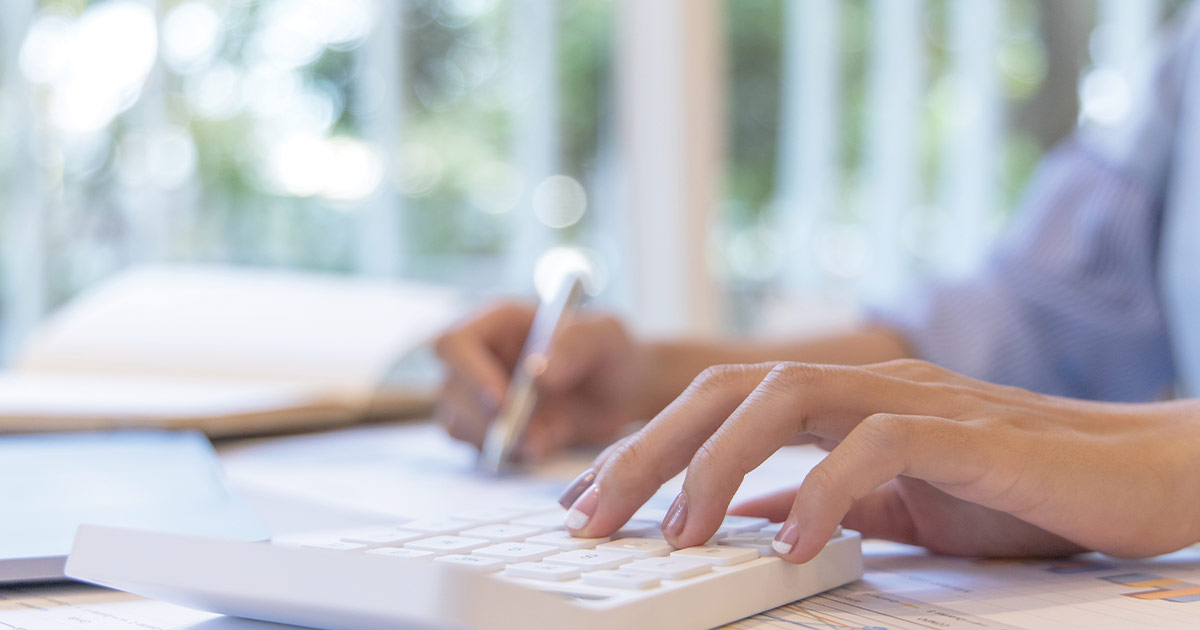You've found yourself feeling down, and end up doing some online shopping—perhaps for items you don't need, with money you don't necessarily have. You're hoping a simple "treat yourself" purchase will enhance your mood, and maybe it does (for a brief moment) ... but then you're left feeling regretful. Sound familiar? You may be engaging in emotional spending.
Often associated with "retail therapy," emotional spending is spending money during a period of heightened emotions, like sadness or stress, on more pleasurable than pragmatic purchases.
Laura Corbiani, Certified Financial Planner™ professional with Midwest Capital Advisors, says almost everyone participates in emotional spending at some point in time, especially when we spend a lot of time online and are endlessly inundated with advertisements for things we consciously or subconsciously tell ourselves we deserve.
"Recognizing you spend emotionally is the first step to making a change," Corbiani said. "Keep in mind that occasional emotional spending is totally fine. Like many things in life, it's all about balance."
How do you know when it's an issue? There are a variety of signals that could indicate there's something bigger at play: Shopping to avoid doing other things like household needs; accumulation of credit card debt to cover needs such as utilities, rent/mortgage and food; hiding spending from your partner; feeling a compulsion to spend any money left in your paycheck; feeling anxious on days you don't go shopping; and buying things to keep up with friends, family members or co-workers.
Once you recognize a change needs to be made, start by identifying your triggers. If you're having trouble figuring out what they are, Corbiani recommends taking a week to keep track of everything you spend, along with how you were feeling each day.
"You should track how you spend in the way that works best for you, as habits that are easy to start will be the ones you can stick with—be it a budgeting app, keeping all your receipts, or simply putting pen to paper," Corbiani explained. She also offered additional strategies for curbing emotional spending in the first place.
TAKE A BREAK.
"If you're tempted to buy something, wait 48 hours. Many times, after taking some time away from the initial urge to buy it, you'll have a better idea if you'll really use or need the item. It also helps to remove any shopping apps from your phone."
REFRAME YOUR THOUGHTS ON SAVING.
"Believe it or not, saving money can feel as good as spending. Deciding that you're going to set aside a certain amount of money each month to save, and then watching it grow, can produce feelings of excitement, happiness, self-confidence and control. These are many of the same feelings you're looking for when you emotionally spend."
SAVE ROOM FOR FUN.
"When working on your budget, make sure you include an amount that allows you to make purchases with freedom (and without regret). There's nothing wrong with emotional spending if it's part of your budget and keeps your overall financial goals on track."
MAKE SAVING AUTOMATIC.
"This can be done by having a monthly sweep of an amount from your checking into savings, or participating in a retirement plan by having funds automatically deducted out of your paycheck."
REMEMBER YOUR FINANCIAL GOALS.
"Every time you save, you're helping your future self be less reliant on a job and have more flexibility with your finances. Reminding yourself why and what you're saving for helps curb impulsive purchases."
ENLIST AN ACCOUNTABILITY BUDDY.
"Having a rough day and are feeling the urge to spend? Call a good friend and chat about what's stressing you out. They can also help you recognize if you're spending to 'keep up' with others or to fill in feelings of low self-esteem or stress. Friend not available? Give yourself some space to ponder what's bothering you."
Often, Corbiani tells people to think about financial savings goals like exercise.
"It can be difficult, but it's important for long-term health and well-being," she said, noting that like exercise, you should start with small, achievable steps. "Small positive changes to your financial habits make a huge difference over the long term in your financial life. Saving for yourself reduces stress by knowing you have enough to cover emergencies, don't need to work forever and have the flexibility to do fun things."
In addition to the measures above, meeting with a financial advisor and trained mental health professional can also be instrumental in overcoming unwanted emotional spending habits.
Written by Sarah Suydam, Managing Editor for West Michigan Woman.
This article originally appeared in the Jun/Jul '22 issue of West Michigan Woman.




